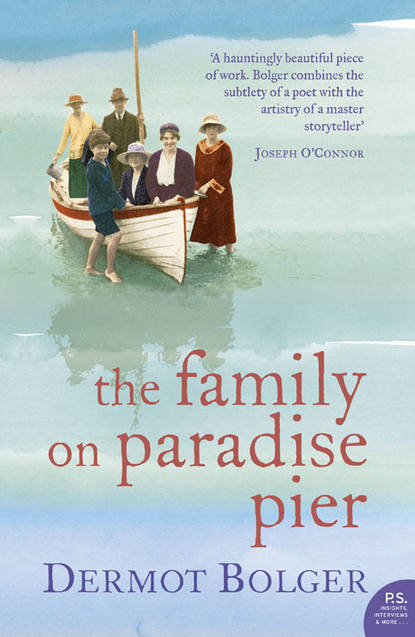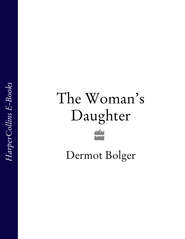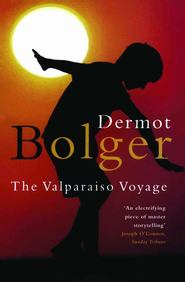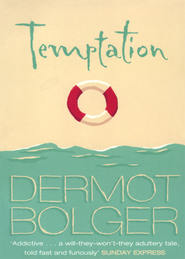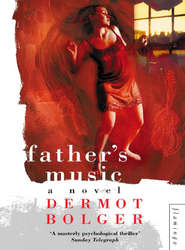По всем вопросам обращайтесь на: info@litportal.ru
(©) 2003-2024.
✖
The Family on Paradise Pier
Настройки чтения
Размер шрифта
Высота строк
Поля
‘Mr Larkin wishes to murder nobody,’ Father argued. ‘He simply wants children not to sleep nine in a bed.’
‘And I agree with him,’ Mr Ffrench interjected. ‘Is it so wrong to want children to have bread?’
‘And shoes?’ Art asked.
‘Yes, shoes too,’ Mr Ffrench agreed.
Mr Hawkins bristled. ‘You’re too free with the talk you allow in this house.’ He pointed into the study. ‘I never though to hear such comments allowed by someone with that portrait over his desk.’
Eva glanced in at the dark portrait of Martin Luther whose stern eyes followed her whenever she entered Father’s study.
‘Any man who pinned a thesis of ninety-five points on a church door invited discourse,’ Father replied, unflappably. ‘Come, Hawkins, let’s not quarrel.’ He smiled at Art and Eva. ‘You children run along before you forfeit your forfeits.’
Maud fretted in the drawing room, impatient at their dallying and upset because Oliver had been commissioned into the ranks of the men. Beatrice Hawkins was anxiously awaiting their presence too. The carpet was rolled back and six cushions placed on the waxed floor. Gas jets hissed as Nurse came down from Brendan’s room, having been coerced into playing records on the gramophone. Dance music began as the children waltzed around the cushions, never straying far lest they lose the game. Nurse lifted the needle and the music stopped. Maud and Thomas were first to sit down, each laughingly bagging a cushion. The three Hawkins girls fell in unison so that Art and Eva were left battling for the last cushion. But Eva spied Art’s almost indecipherable feign as he slipped, ensuring that she got to the cushion first.
‘Forfeit!’ the others shouted gleefully.
‘What is it?’ Art asked.
Maud glanced towards the door, ensuring that the adults were beyond earshot. She sneaked a look at Nurse. ‘You must kiss the person you like best,’ Maud commanded – her favourite forfeit, the one she longed to play on Oliver. Eva blushed as Art glanced at her, certain of being chosen, yet dreading the public spectacle. Then, to her astonishment, he strode towards Beatrice Hawkins to surprise the girl with a kiss. Beatrice stared at Art as if nobody else was present and Eva suddenly sensed that she was losing her brother. Then the others laughed as Beatrice blushed in embarrassed delight. Art turned to Nurse, smiling.
‘More music,’ he commanded. ‘Let’s dance. Let’s all dance.’
They danced on in the August twilight. Art was now being so attentive to Eva that she made herself forget the way he had kissed Beatrice. It grew so dark outside that their reflections became visible in the windowpanes. There was something comforting about seeing her world there, exactly as it should be, with bodies whirling about. Still she was glad when Cook knocked on the door to announce that supper was ready because it hastened the time when the Hawkins family would be leaving and she would have Art to herself.
Mother sensed that something was wrong as soon as the cooked mackerel was placed before Eva. Gently she suggested that Cook might find something else for her. People at the table were too busy trying to be heard to pay much attention. Father had yielded his normal seat to Grandpappy who seemed to agree with Mr Hawkins on most issues concerning politics. Oliver Hawkins spoke little but Eva saw how he often glanced at Maud. Art finished eating and asked to be excused. Eva waited a few moments then followed him out to the old coach house where he and Thomas had constructed a den. He was busy at a table with bits of tube and wires.
‘Are you feeling okay?’ she asked. ‘Would you like to do something?’
Art looked up. ‘I will later. I just want to see if I can make a wireless.’
Brendan appeared in the doorway, having sneaked out of bed in hopes of being with his oldest brother. He was fascinated by anything Art did and pleaded to be allowed to help with the complex arrangements of wire. Eva left them there, knowing that soon Thomas would join them to question each decision with his impeccable logic, becoming even more determined than Art to construct this contraption. She knew that she would not see Art for the rest of the night, with the boys locked away, fixated by crackling siren voices as they attempted to construct their wireless set.
Returning to the house she found that the adults and the girls had moved into the drawing room. The front door was open and several local people had wandered in, attracted by the sound of the piano. Eva liked how people always spilled into the Manor House. There was old Dr O’Donnell from Killaghtee House, waylaid on his way home from a sick call, and two soldiers home on leave who clapped loudly when Maud finished her party piece. Eva took a window seat in the crowded room as Father sang the tone poem for violin and orchestra in his still unperformed Tir na n-Og symphony:
‘Far, far away, across the sea
There lies an island divinely fair
Where spirits blest forever dwell
And breathe its radiant enchanted air.’
Everyone applauded, taking pride in this local composition. A hush came as Mr Ffrench took Father’s place at the piano. This striking young officer was still a novelty in Dunkineely and few people had previously heard him sing. Mr Ffrench announced that while travelling with the Royal Navy he had encountered strange men, but none as unusual as the hero of Mr Percy French’s song, Abdullah Bulbul Amir. He commenced the opening bars, then stopped to stare at Eva.
‘What are you sketching, Eva?’
‘You.’
Mr Ffrench beckoned Eva forward. She felt embarrassed, unused to anyone except Mother paying attention to her sketching. Heads craned forward to await the officer’s opinion. He considered her drawing in a silence that seemed to last for ever.
‘Well, Eva, do you know what this officer thinks?’
‘No, sir.’
‘That you will be a true artist when you grow up. Let no one steer you from that path. Can I keep this?’
Eva nodded, too overcome to speak, and returned to her seat, watching as Mr Ffrench began to play, with no sheet music in front of him, but an unfinished sketch balanced on the holder instead. She longed to get back the drawing, to sketch in Mother and Father and all the other faces in the crowded drawing room as Mr Ffrench smiled at her, then began to sing in a wondrous voice. People demanded an encore and it was midnight before all the party pieces were performed, with the visitors departing into the night, calling their farewells as the cart moved off along the dark street.
Eva and Maud had hot milk and bread in the kitchen before being sent to bed. Eva was glad to go, but Maud felt that she should be allowed to stay up with the adults who would talk late into the night. The wooden shutters blocked out any moonlight. Both sisters lay quietly, awaiting Mother’s final visit. Eva gazed up at the picture of a young girl kneeling beside a bed in prayer. She could not remember a time when this picture had not hung on her wall. She listened for Mother’s shoes on the creaky step near the bend of the stairs. The door was ajar, gaslight filtering in from the corridor. Mother ascended the stairs and Eva heard her soft voice in Art’s room before she pushed their door fully open. Framed in the light she looked beautiful in her dark grey hostess gown. She sat for a time on each bed. There was no hugging. She never took them on her knee for cuddles. Instead they sensed the aura of her love as she quietly asked each daughter if they had enjoyed their day. Mother’s fingers played with Eva’s hair while they talked, braiding imaginary plaits as a faint fragrance filled the air. It emanated from the hand lotion Mother always rubbed into her palms after gardening. She wore no makeup or perfume, just this scent as her fingers stroked Eva’s hair for a final few seconds before she said goodnight and the door closed.
Maud turned over, quickly falling asleep. Eva lay awake for a while, still able to smell Mother’s hand lotion. It had been a perfect day after all and there was still her birthday to come. The story about being rejected at birth for being a girl seemed less scary now. She fell asleep, filled with warm milk and bread and knowing that she was truly loved.
TWO The News (#ulink_b69bf654-72ef-50c2-b356-34ccd2a577cc)
Easter 1916
Last night the maid had gone out walking and saw the lights of a German submarine rising from the dark sea at St John’s Point. She ran back to the house, hysterical for her country and her virginity, calling out for Mr Tim. Mr Timothy Goold Verschoyle had cycled out along the Bruckless road to watch the lights approach, stopping Dr O’Donnell on his way home from a sick call to tell him how he’d been mistaken for the vanguard of an invading force. On the deserted road the two men had laughed but tension lurked behind their good humour because for once the maid’s hysterics might have contained an edge of truth. The declaration of martial law in Dublin City and environs did not extend to Donegal, where life appeared normal. But amidst the constant bushfire of rumours about an armed insurrection in that city there was so little confirmed news that nobody was certain what to believe any more.
On Monday some bizarre class of Republic had been proclaimed in the capital by a handful of desperadoes. In some accounts the insurgents were utterly isolated, but in other reports they were holding Dublin until German reinforcements arrived. Whatever was happening, Mr Tim knew that his cousin, Countess Markievicz, would be at the centre of it, in James Connolly’s Citizen Army. Last year in the Irish Times there had been a photograph of her in a fantastical military uniform, marching at the head of a group of young men who resembled boy scouts more than volunteer soldiers. Mr Tim had supported the Irish Volunteers who were founded to demand Home Rule from Britain, especially as that force threatened no offensive action but existed merely as a counterweight to the unionist militant Ulster Volunteers who were pledged to resist at any cost Westminster’s plans to grant Home Rule. When the Great War started, the Irish Volunteers leadership had declared it to be the duty of young men to fight against Germany to show how Ireland valued freedom and would deserve the reward of self-government within the Empire when peace came. Republican zealots like the Countess had broken away from the Irish Volunteers to form a small splinter force, but it possessed so little support that nobody took them seriously. Indeed her conversion to Catholicism had caused more scandal in the family than what, until this week, had been seen as amateur theatrics of militaristic posing.
Mr Tim did not know how many others had joined the Countess in this shocking fiasco in Dublin. He was just glad that all his family would soon be safely gathered in the Manor House. Maud was the last to arrive, having gone to spend three days with a schoolfriend in Londonderry before the trouble broke out. Thankfully the trains were running and she would now be in Dunkineely, being escorted home by Art. Art had decided to meet the train alone and tell Maud the news. Mr Tim regarded his eldest son’s offer to do this as a sign that he was adjusting to the role and duties of an heir. With the sudden death of Grandpappy in January, Art was now just one heartbeat – Mr Tim’s heartbeat – away from inheriting the family home. Art was growing up. Mr Tim could see a difference when he travelled home at the end of each term from Marlborough College. This Easter he had brought back two school chums who had not previously set foot in Ireland and were alarmed by the startling events in Dublin. Still they were decent chaps, familiar with the rituals of bad news. They had played tennis with Eva and Thomas this afternoon, then slipped off for a swim at Bruckless Pier to let the family be alone when Maud reached home. Having changed trains at Strabane before boarding the narrow-gauge service that chugged along the coast from Donegal town to Killybegs, Maud would be expecting her siblings to crowd the tiny platform at Dunkineely in welcome. The sight of Art standing alone would disconcert her because she had the quickest brain in the family.
Mr Tim kept watch at his window, wanting to be the first to greet her. He saw them approach along the main street in silence, Art carrying Maud’s case. Leaving his study, Mr Tim opened the front door. The street was utterly quiet, like it always went after the postmaster left his office holding a telegram. This had nothing to do with their news, but ongoing events in Dublin had created a strange atmosphere, with people saying little and little way of knowing if they meant what they said. Maud’s eyes were puffy but she had not cried as yet.
‘I’m all right, Father,’ she announced before he could utter a word. ‘It’s not as if I knew Oliver Hawkins well. We only met for the first time last summer.’
‘You were fond of him all the same,’ Mr Tim replied.
‘He was a boy that any girl would be fond of. When did you hear the news?’
‘Last week. Mrs Ffrench told us he was reported missing in action. I didn’t want to write to you at school. I thought it best to wait until you were here.’
‘I don’t see why…’ Maud looked away, anxious lest she betray her emotions. ‘Oliver sent me the odd letter from the army, but only I think so he would have some girl to write to, like other boys in his outfit. Nothing was ever…’ Maud looked at her father. ‘Still you were right not to write. So many girls get news about their brothers and cousins. You see them cry for days, with other girls crying as well, caught up in hysteria. Last summer Oliver’s parents thought he was going back to school from Donegal but he had other plans. He told me he was going to enlist on his last night here. I wanted to talk him out of it, but it seemed so gallant.’
‘There’s nothing gallant in war.’ Mr Tim glanced at Art, anxious to make his son understand. At thirteen he was tall and broad enough to pass for sixteen. Last month a fifteen-year-old boy, who lied about his age to enlist, was executed for cowardice in France. Art possessed a rebellious streak but, with his accent, no recruiting sergeant would dare sign him up as trench fodder.
‘Nothing gallant even in Dublin?’ Maud asked. ‘Outnumbered a hundred to one? The family I was staying with kept talking about the pro-German traitors fighting in Dublin. I wanted to say they were pro-Irish and I was related to one of them. But you know what Ulster Protestants are like. Have the rebels a chance, Father?’
‘A chance of what?’ Mr Tim asked. ‘It would be laughable if people were not being shot dead. Every second Dublin family has a son in France. The only people who rose with them were the slum hordes looting shops.’
‘I should visit Mrs Ffrench,’ Maud said. ‘She must be upset about Oliver.’
‘The poor woman has lost both brothers in this war already,’ Mr Tim replied. ‘She has aged so much worrying about Ffrench, who is seeing plenty of naval action. He’s quite the rising star but she just wants him safely home.’
‘How is Eva?’ Maud asked.
Mr Tim smiled. ‘Eva is Eva. Yesterday she decided to aid the Dublin rebels by climbing into a tree and writing a poem for them.’





